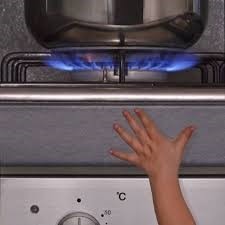Parshas V’eschanan – Shabbos Nachamu
Don’t Touch The Fire On The Stove!
“Comfort, comfort, My people, says your G-D” (Isaiah 40:1)
When Tzivia & Rafi grew older, they understood that the light hit did not come from anger but from love.
Both of our Batei Mikdash, Holy Temples, were destroyed on the 9th of Av. The destructions were devastatingly depressing for the Jewish People. They felt forsaken by Hashem. This Shabbos, we read the haftorah of nachamu, consolation, from the Prophet Isaiah (Isaiah 40:1). It is the first of seven consecutive weeks of haftorahs of consolation. “Comfort, comfort, My people, says your G-D”. Hashem, Himself, will comfort us and bring the ultimate redemption.
Hashem’s love for us is greater than the love of a parent for his child. Although we deserved to be punished, it pained Hashem greatly to do so. However, even when we were punished, Hashem showed His love for us. The Midrash Eichah (4:14) quotes a pasuk from Tehillim, Psalms (79:1) which discusses the destruction of the Temple. It is written: “A psalm of Asaf: Hashem, peoples have invaded Your inheritance”. Why does the pasuk say that it was a psalm, a song? Since it depicts a sad event, shouldn’t it have said the weeping of Asaf? The Midrash continues that this is analogous to a king who prepared a wedding house for his son. He made the house very beautiful. Unfortunately, the king’s son went astray. Immediately, the king went to the wedding house and ripped the curtains and broke the poles. The son’s mentor was overjoyed at what the king had done. He took a reed flute and began playing. He was asked, ‘The king overturned his son’s wedding house, and you are sitting and playing?!” He replied that he was happy that the king had overturned his son’s wedding canopy and did not vent his anger on his son. Similarly, they said to Asaf, “Hashem, blessed be He, destroyed the Sanctuary and the Temple, and you are sitting and playing?” Asaf replied that he was playing because he was happy that Hashem vented His wrath on the wood and stones and did not vent His wrath on the Jewish People.
Three times a year, on Succos, Pesach, and Shavuos, the Jews would make a pilgrimage to the Beis Hamikdash. The Talmud (Yoma 54A) quotes Rav Ketina who says that the kohanim would open the curtains to the Holy of Holies, in the Beis HaMikdash. They would show the people the keruvim, the two golden, childlike figures that were on the cover of the holy Aron. Rashi explains that the Jews saw that the keruvim were clinging to one another. This symbolized the love that Hashem had for the Jewish People. The Talmud (Bava Basra 99A) says that when the Jewish People had sinned and were distant from Hashem, the keruvim would face away from each other.
The Talmud (Yoma 54B) quotes Resh Lakish who says that when the Babylonians entered the First Temple, they saw that the keruvim were clinging to each other.
Precisely at the time of the physical destruction, when Hashem distanced Himself from His people, He parted with an embrace. Hashem was sending us a message- I still love you and will always love you! Yes, I must destroy the Beis HaMikdash but I have not rejected you! My holy Presence is also going into exile, just as you are. But I shall return! And I will also bring you back!
We are Hashem’s special nation. Even when Hashem must punish us for our misdeeds,
He loves us so much! This should be a source of comfort for us.




